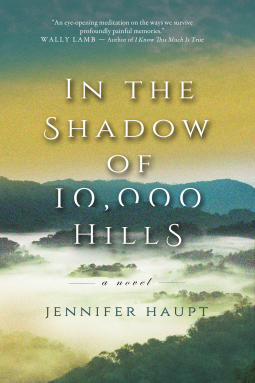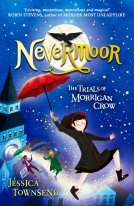
In the Shadow of 10,000 Hills
by Jennifer Haupt
This title was previously available on NetGalley and is now archived.
Send NetGalley books directly to your Kindle or Kindle app
1
To read on a Kindle or Kindle app, please add kindle@netgalley.com as an approved email address to receive files in your Amazon account. Click here for step-by-step instructions.
2
Also find your Kindle email address within your Amazon account, and enter it here.
Pub Date 1 Apr 2018 | Archive Date 30 Jun 2018
Talking about this book? Use #InTheShadowOf10,000hills #NetGalley. More hashtag tips!
Description
Follow the intertwining stories of three women from diverse backgrounds, all searching for family and personal peace in post-genocide Rwanda. At the heart of this literary novel that bestselling author Wally Lamb calls "an evocative page-turner" is the discovery of grace when there can be no forgiveness.
In 1968, a disillusioned Lillian Carlson left Atlanta after the assassination of Martin Luther King Jr. She found meaning in the hearts of orphaned children in Rwanda and cobbled together her own small orphanage in the Rift Valley.
Three decades later, in New York City, Rachel Shepherd, lost and heartbroken herself, embarks on a journey to find the father who abandoned her, a now-famous photographer.
When an online search turns up a clue to his whereabouts, Rachel travels to Rwanda to connect with an unsuspecting and uncooperative Lillian. As Rachel tries to unravel the mystery of her father's disappearance, she finds an unexpected ally in a young Tutsi woman who lived through a profound experience alongside her father.
Set amongst the gaping wounds of a healing country, follow the intertwining stories of three women who discover something unexpected: grace when there can be no forgiveness.
A Note From the Publisher
Advance Praise
“In the Shadow of 10,000 Hills is well worth reading. It is an eloquent effort to find resilience and connection in the face of grievous loss." — Seattle Times
“Journalist Haupt spent time in Rwanda researching the nature of grief and forgiveness. In this intensely beautiful debut, she shows that it’s indeed women who hold up half the sky.” — Library Journal
"Each heartrending detail is revealed with perfect timing, the expert pacing of the story escalating at every turn. It is both a suspenseful and an emotionally graceful novel..." — Foreword Reviews
"There are villains and horrible atrocities with far-reaching effects, but as Haupt examines events through different perspectives, the focus is on healing rather than revenge and anger. This debut novel is a good choice for those seeking tales of hope after adversity, and it may prove popular with book clubs." — Booklist
“Jennifer Haupt's In the Shadow of 10,000 Hills is both an evocative page-turner and an eye-opening meditation on the ways we survive profoundly painful memories and negotiate the complexities of love. I was deeply moved by this story.” — Wally Lamb, author of She's Come Undone and I Know This Much Is True
“This blazingly original novel is about the illusions of love, the way memory can confound or release you, and the knotted threads that make up family—and forgiveness. Profound, powerful, and oh, so, so moving.” — Caroline Leavitt, New York Times bestselling author
“This astonishing debut novel about an American woman's search for her father in Rwanda knits together intricate, complex stories of love and the destructive forces of society that tear families apart. Haunting and delicately told, Jennifer Haupt enters the heart of Rwanda's darkest hour and shows us where to find the light." — Jessica Keener, author of Strangers In Budapest
OKRA Pick for Spring 2018 - Southern Independent Booksellers
Marketing Plan
Jennifer is currently touring. Please check out
jenniferhaupt.com/events to find out where she is right now...
Jennifer is currently touring. Please check out
jenniferhaupt.com/events to find out where she is right now...
Available Editions
| EDITION | Other Format |
| ISBN | 9781771681339 |
| PRICE | CA$19.95 (CAD) |
| PAGES | 384 |
Featured Reviews
 Tegan T, Bookseller
Tegan T, Bookseller
Whether you’re looking for a fulfilling novel, a transporting reading experience, or a great book club discussion book, choose Jennifer Haupt’s debut. In the Shadow of 10,000 Hills portrays interweaving journeys in the aftermath of the Rwandan genocide with a sensitivity and universality that make the unbearable bearable. It’s the story of an American daughter’s journey to find the father who abandoned her; the saga of an orphanage before, during, and after the carnage; and the tragedy of neighbors slaughtered by neighbors followed by the uneasy miracle of survivors living together again. It’s an epic of hearts broken, scars healing, and the everyday and extraordinary choices people have to make. The characters’ individual strength and the unbelievable community will live on in your memory. Brace yourself, open the cover, and allow yourself to be transformed.
Readers who liked this book also liked:
Christine Nolfi
General Fiction (Adult), Romance, Women's Fiction
Fiona Veitch Smith
General Fiction (Adult), Historical Fiction, Mystery & Thrillers


















